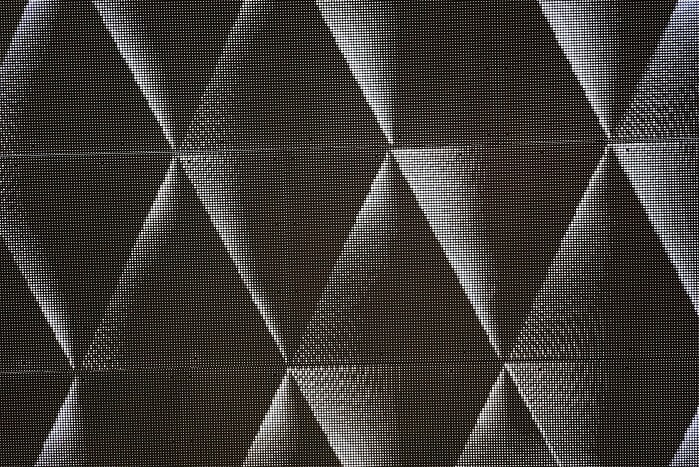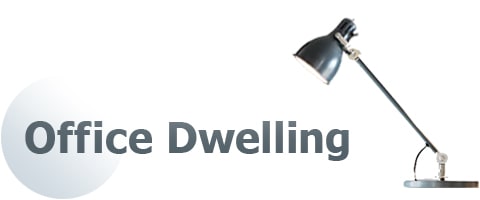
Home offices are wonderful for increasing productivity and reducing the stress of the office life. However, too much noise can become a major distraction, and it can come from many sources. Luckily, there are amazing options for soundproofing your home office, and some of them just require a little bit of attention to detail.
Knowing how sound travels can help quite a bit with planning these solutions. Sound travels in waves, and these waves can be displaced, interrupted, and rediverted. Acoustic foam traps and absorbs sound waves, and solid structures can block it from entering completely.
Placing your Home Office in the Right Spot
Having a home office in the quietest part of the house is really step one to being successful. Keep the office away from the kids’ rooms if you have children, and avoid putting it on the side of the house where your window might face a busy street. If you can, do not put the home office beneath stairs or places where your kids may be running around often. Finally, avoid putting it above the garage where those vibrations will endlessly rock through the area. Luckily, if you cannot avoid all of these obstacles, there are still options to seal out the rest of that noise.
Seal the Noise out of the Home Office
When it comes to sealing noise out of your home office, it really comes down to just what it sounds like: seal the room. If air can travel through a space, noise can as well. Granted, some sound may leak through even if the room is completely sealed, but most of it will be reduced to next to nothing immediately with just a few easy steps.
1. Seal the Door
Place seals along the edges of your doorframe. Compressible foam gasket can be added to the doorframe relatively easily, and a sweep seal can be installed into the bottom of any door to further seal out or in sound. Both of these options are decently inexpensive, and they can be bought online or at any home improvement store.
2. Seal the Windows
Having windows that do not close flushly can let in plenty of unwanted noise from outside, and this becomes a particular struggle in neighborhoods with busy streets or perhaps during construction projects outside. Make sure your window seals close tightly, and be up to date on window repairs, especially in hotter areas like Phoenix where there is little relief for your windows from the blazing sun. That heat can warp the glass and destroy window seals in just a few years, so make sure repairs are made regularly, and consider protecting your windows with awnings or window film.
3. Seal the Walls
Drywall can crack relatively easily around areas electrical boxes and ducts. Look for these crevices, and use a caulking gun to seal them up. Noise can enter these areas and reverberate to amplify through your home office.
Soundproof Every Surface
1. Soundproof Doors
Having a hollow door will let in far too much noise regardless of how well you seal it. Invest in a solid core door if having a quiet home office is truly essential to you. Most of the noise in and out of your home will enter through this spot, so paying attention to it to seal out noise will do wonders to quieting down the home office.
2. Soundproof Windows
If you live in a busy city, near a busy street or in an area that is experiencing lots of construction, you need to deal with the sound coming through those windows. Soundproof windows can be installed on top of your existing window to add extra panes of glass to seal out sound more efficiently. Again, extra surface area creates further obstacles to block sound, and prevents it from entering.
Another great option is something you may have already considered to block out light. Blackout curtains are thick enough to block out most sound by themselves as that thick fabric naturally absorbs sound very easily.
3. Soundproof your Floors
Acoustic boards can go right over your floor if noise is coming from below. These will help stymie any noise, and you can cover it with carpet to both further reduce noise and hide the relatively unattractive acoustic boards.
4. Soundproof your Walls
If the effort to soundproof is desperate, consider adding acoustic boards to the wall. You can then cover these with drywall, and sound through your walls should be reduced to next-to-nothing. Do consider painting or adding wallpaper over the top as bare drywall and acoustic board walls have not yet reached their peak fashion.
5. Additional Soundproofing
Acoustic foam can be added to walls, hang from the ceiling, or even be placed snugly into the corner to trap bass. This foam prevents sound from echoing at all, and forces it to get stuck right in that device. This takes little effort to install, but may take more effort to hide or make stylish.
Get Noise-Cancelling Headphones
Keeping noise out of your workspace does not have to break the bank or require you to invest in reconstructing an entire room of your house. A simple fix can be the purchase of noise-cancelling headphones. This is an essential purchase anyways for many home office workers. It takes out any distractions when in meetings. Personally, I feel much more focused when I am wearing headphones listening to lyricless music. My thoughts flow freely, and I am always my most productive that way.
Noise-cancelling headphones come in many styles and options, and you can get earbuds or over-the-ear headphones depending on your preference. This is an easy fix, and it can save you quite a bit of money when compared to the other options. Noise Cancelling Ear Phones Review (link)
Establish Quiet Hours for your Family to increase Productivity
One option that costs not a dollar is to have a clean talk with your family about when you need to get your work done. If you need to get some work done, the best thing you could realistically do is talk to your family about what you need them to let you do so.
If you are working on the weekend when everyone is home, have your spouse take the kids out of the house perhaps, or let them go to a friend’s house. This is a great way to make sure an important conference call or a vital day of dedicated work goes uninterrupted.
At the end of the day, no amount of soundproofing can stop anyone from knocking on your door. If you have more mature children, let them know what hours of the day are bad to come into your home office or bother you.
I would never recommend you use video games as a babysitter, but do not be afraid to let them know that this is a good time to play some games or be with their siblings or friends doing something relatively quiet on the other side of the house or outside. Sometimes, soundproofing the home office is not the secret. Sometimes, talking can be more productive than silence, so consider having a conversation about what you need to be successful and what your family can do to provide for that.
Your home office needs to hold onto your desired aesthetic. Make sure not to throw so many efforts into soundproofing that your natural-feeling home office begins to feel like a recording studio. A little bit of soundproofing is important, but these ideas are primarily given with the intention that one would take a few of the most convenient ones, maybe tack on one extra precaution, and let the rest go. Unless you are actually building a home recording studio, which is a great idea for a home office if you are, you probably do not need most of these options.
